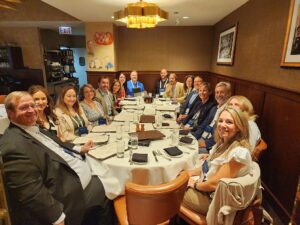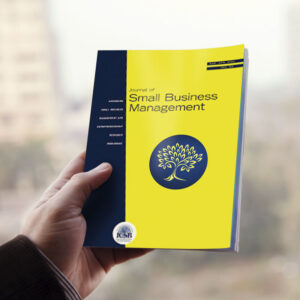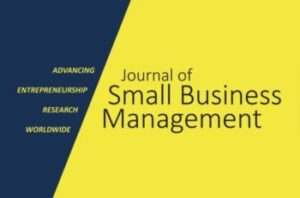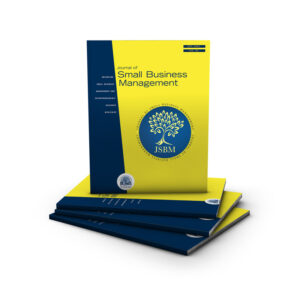
Largest-ever Gathering of Editors for JSBM
A historic event in Chicago as the largest-ever gathering of Editors for ICSB’s Journal of Small Business Management (JSBM) convened, marking

A historic event in Chicago as the largest-ever gathering of Editors for ICSB’s Journal of Small Business Management (JSBM) convened, marking

There is ample evidence that QRPs are corrosive because they make research opaque and therefore challenge the credibility, trustworthiness, and usefulness

Guest Editors: Prof. Roberto Parente University of Salerno Prof. Ki Chan Kim Catholic University of Korea-Seoul Prof. Alex De Noble San

By Jeffrey J. McNally, Panagiotis Piperopoulos, Dianne H. B. Welsh,Thomas Mengel, Maha Tantawy & Nikolaos Papageorgiadis | Originally published online: 13
By Yingzhao Xiao,Marta K. Dowejko, Kevin Au & Anna J. C. Hsu | Originally published online: 13 Nov 2019
ABSTRACT<br

By Valeriano Sanchez-Famoso, Amaia Maseda, Txomin Iturralde, Sharon M. Danes & Gloria Aparicio | Originally published online: 13 Nov 2019

By Giancarlo Lauto, Daniel Pittino & Francesca Visintin | Originally published online: 13 Nov 2019
ABSTRACT
Although a substantial

By Ayna Yusubova, Petra Andries & Bart Clarysse | Originally published online: 15 Nov 2019
ABSTRACT
Drawing on a

By Marc Cowling,Neil Lee & Elisa Ughetto | Originally published online: 19 Nov 2019
ABSTRACT
Access to inexpensive short-term

By Cuilian Zhang & Hui Wang | Originally published online: 19 Nov 2019
ABSTRACT
This study explores how and

By Deborah de Lange & Dave Valliere | Originally published online: 22 Nov 2019
ABSTRACT
This empirical study investigates

By Jose-Luis Hervas-Oliver, Francisca Sempere-Ripoll, Carles Boronat-Moll & Sofia Estelles-Miguel | Originally published online: 17 Dec 2019
ABSTRACT
Small